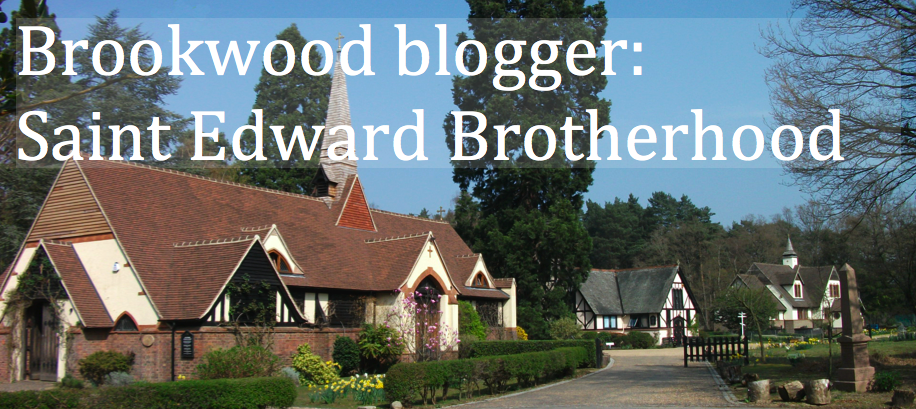SAINT
EDWARD’S MARTYRDOM falls during Great Lent - he was slain at that time lest he
should marry and beget an heir - and so
we keep as his principal festival the anniversary of the deposition of his
sacred relics here at Brookwood on 3rd / 16th September, 1984. On that
occasion, the Ever-Memorable Bishop Gregory (Grabbe) presided at
the ceremonies. This year we were
blessed to have His Grace, Bishop Ambrose of Methoni with us
for the celebration. He had been leading
a pilgrimage to Constantinople, and arrived on a flight from Istanbul at
Heathrow on the afternoon of Friday, 13th September. He was met by members of the Brotherhood, and
stayed with us overnight. Though he had
had a 26-hour day the day before just after six on the Saturday morning, we set
out for the Convent of the Annunciation in Willesden, where His
Grace celebrated the Divine Liturgy assisted by the Brotherhood clergy and Father
Stephen Fretwell and Father Deacon Borislav Popov. In his sermon Bishop Ambrose spoke of the
significance of the Church New Year, which fell on that day, and of the witness
of Saint Simeon the Stylite, whose feast day it was, showing how it instructed
us not to judge others by outward appearance.
In doing this he told us of an edifying example of a God-fearing lady
whom he personally knew in contemporary Greece.
After the service, Mother Vikentia and her sisters invited everyone who attended to breakfast in
their trapeza.
Naturally the services for Saint
Edward’s day, the Saturday evening Vigil and the Sunday morning Divine Liturgy,
were celebrated at Brookwood, and the sacred relics of the Martyr were brought
out for the veneration of the faithful.
At both services we were joined by friends from other Orthodox parishes,
some from the North of England and even from abroad: from France, Bulgaria, and
the Russian Federation. At the Vigil His
Grace led the prayers at the liti and at the polyeleos.
On Sunday morning, the church
was filled to overflowing. Four
languages were used: English, Slavonic, Romanian and Greek, with the Bishop
adding in a little French and Georgian.
At the end of the Divine Liturgy, the Bishop preached on Saint Edward’s
support of the monastics and the importance of monastism for the Church,
expressing the wish that other monastic communities would be founded in this
country. After the dismissal, we served
the Lesser Blessing of Waters and then made a procession around the outside of
the church with the sacred relics, while the choir chanted the canon of the
Saint. This canon was composed by a
pious Greek layman, Panagiotes Somalis, a few years
ago, approved by the Bishops, and translated into English for us by Archimandrite
Patapios of the St Gregory Palamas Monastery in California. The original service to St Edward, which we
chant at the March feast, was composed by the late Valerie
Hoecke in Church Slavonic and translated into English by Reader Isaac Lambertsen of New York City. So Orthodox of several traditions have worked
together to honour the Saint. After the procession, when the faithful had
re-entered the church, they venerated the sacred relics, kissed the Cross, and
were sprinkled with the newly blessed holy water. Thereafter, we had our usual buffet
breakfast, and we owe a debt of gratitude to all who brought foods for that and
helped us to feed so many people.
Despite having had a long day, His Grace circulated among the people and
spoke to them and heard their concerns.
At about tea-time, he took his leave of us to stay in London over the
Monday and prepare for his flight to Russia very early on the Tuesday
morning. We are indebted to His Grace
for the archpastoral love he thus showed our community and the blessing which
his celebrating with us brought to our feast.
